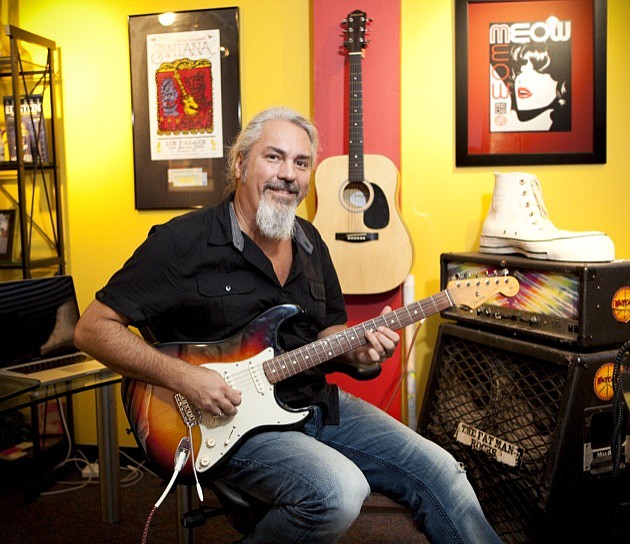- July 26, 2024
-
-
Loading

Loading

Scott Heaps has never employed someone strictly for sales at his website design and marketing firm.
That goes all the way back to 1997. Dial-up was the dominant way to get online back then, Google was the name of a project in a Stanford graduate class and Facebook was nonexistent. Facebook's Mark Zuckerberg, in fact, was 13 years old when Heaps founded Sarasota-based Gravity Free.
Heaps eschews sales people because he says Gravity Free's Web designers, marketing professionals and Web developers should be the sales force. Says Heaps: “We sell by having our people do good work.”
The philosophy works. Run out of an office a mile from Siesta Key Beach, in a workspace reminiscent of late 1990s dot-com bubble firms, Gravity Free hasn't collapsed under the recession. The firm had $2.4 million in 2010 revenues, up 9.1% from 2009, when it had $2.2 million.
The real quandary, says Heaps and other Gravity Free executives, is to find the right employees to meet the business growth. “Our biggest challenge has never been getting work,” says Heaps. “Our biggest challenge is servicing the clients we do have really well.”
The firm currently seeks to hire up to eight people, adding to its employee base of 18. For many Gulf Coast small business owners, of course, a need to grow the work force by nearly 50% would surely fall under the “good problem” category, given the anemic economic recovery.
But at Gravity Free, finding the right employee, someone who gets the company's play-hard-work-hard culture, who believes in its mission, and, not insignificantly, who has talent, has been an unforeseen struggle. The company seeks people for marketing, Web design and developers. It has received hundreds of resumes and interviewed many applicants. It has hired few.
Focused strategy
Gravity Free is in a crowded space on the Gulf Coast. A Web design firm isn't the novelty it was in 1997, when Heaps founded Gravity Free. From Tampa to Naples, there are now dozens of firms that do Web design. There's also a bubbling industry for firms that focus solely on directing other company's social media strategies.
With competition lurking and changes in technology coming fast, there's sometimes temptation to follow what other firms to do grow. For instance, Gravity Free employees hear this refrain regularly from clients: “I need an app.” The actual need, however, is debatable, says the firm.
So Heaps, a guitar aficionado who sometimes wears flip-flops to the office, works hard to make sure Gravity Free keeps its focus on four main principles for each client.
First, it figures out who the client aims to reach with the website (or iPhone application.) Then, it designs the website with a concentration on usability. The last two pieces are search engine optimization and landing page utilization, the latter being the specific Web page that motivates users to take action, such as make a purchase.
Gravity Free will do many things for clients, but Heaps says all the moves come back to those four points. It has also steadfastly refused to get into work that's outside its expertise. “We're not full-on techies,” says Heaps. “We don't do networking.”
The strategy has fostered growth, and it has also allowed the company to have a diverse client list. Gravity Free past and present clients include Lakewood Ranch Commercial Realty; Center for Sight, an eye care and skin care practice with eight locations on the Gulf Coast; and the Van Wezel Performing Arts Hall in downtown Sarasota. The firm has also worked with many independent florists nationwide.
Heaps' passion for music also sometimes seeps into the client list. For example, the firm recently published a book written by Rudy Sarzo, a bassist for Ozzy Osbourne. Gravity Free also designed an interactive Web campaign to promote the book, “Off The Rails: Aboard the Crazy Train in Blizzard of Ozz.”
A project like the Sarzo book, says Heaps, keeps work vibrant. He has searched for projects like that going back to when he first founded the company, out of his house. A York, Pa., native, Heaps had worked in software automation. Launching an Internet firm in 1997, though, was a risk in and of itself. Says Heaps: “It wasn't really proven back then that the Internet would work.”
The work now is to find the right people to continue the firm's success. “Our model is not to get bigger,” says Heaps. “It's to get better.”